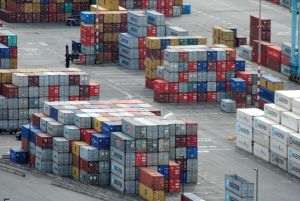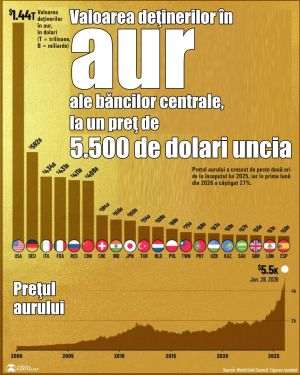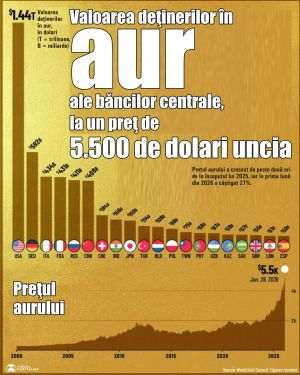• Senator Ovidiu Marian: We need to settle the matter of the limitation as soon as possible
• CNVM suspended SIFs from trading yesterday as BSE did not react on time
After more than half a year of debates and procrastination, the Senate yesterday approved the draft law increasing the limitation of holdings in the financial investment firms (SIFs) from 1 per cent to 5 per cent. Notwithstanding, the story of the holding limitation is far from over as the draft law is yet to be debated by the Chamber of Deputies, which will have the final say on the matter.
Investors may have to wait until 2010 for a resolution, although those who initiated the draft law are making efforts to have it signed into law before the end of 2009.
"We have submitted a letter to the Standing Bureau of the Chamber of Deputies asking for the draft law regarding the holding limitation to be debated as an emergency. I would very much like the deputies to resolve the matter of the holding limitation this year, but we need to wait and see what happens. Anyway, we will insist on this matter," Senator Ovidiu Marian, one of the authors of the draft law, told BURSA.
"We need to settle the matter of the holding limitation once and for all and we need to do it as soon as possible, to avoid fluctuations in the price of SIF shares on the Stock Exchange whenever the subject is discussed," Senator Marian added.
The news that the Senate had given the green light to the 5 per cent holding limitation did not seem to surprise the market, although investors had become aware on Monday that the matter would be discussed by the Budget - Finance Committee of the Senate on that same day.
After the news became public, SIF shares unexpectedly lost 1 per cent from the previously logged peak, before being suspended from trading. When trading resumed, the BET-FI Index first recovered the slight decline only to start slipping again shortly thereafter and closed the day with a 5.2 per cent growth.
Adrian Barbulescu, Deputy Manager of Operations at the brokerage firm Prime Transaction commented on the events: "The market was calm at first, but then it started to experience some turbulence as the Parliament was debating the draft law. When the news started to spread, some massive buy orders were placed, but then again there were also some speculative moves before the news became public, as some of the investors did not want to take the risk of a negative decision by the Senate. After the SIF shares became available for trading again, the investors" interest was quite obvious, especially in SIF5 shares. A sudden surge was noted and then the sellers started to appear."
Barbulescu believes that investors have learned their lesson about the SIF holding limitation and that is why yesterday"s news did not send the price of SIF shares into the skies. "We are not even halfway through to increasing the limitation on SIF holdings, considering that the final decision belongs to the Chamber of Deputies. This time, the price did not increase as much as it did on similar other occasions, because the investors have learned their lesson about the limitation. They would usually place the orders rather high because the prospective buyers were not showing. Today (i.e. yesterday), however, the sellers appeared immediately, because they realized it was safer to cash in a profit than think about a bigger potential profit when a decision was eventually made," Barbulescu further explained.
The investors are now waiting for the debates in the Chamber of Deputies, but the ongoing political crisis could postpone a decision on the draft law increasing the limitation on holdings in the SIFs.
It was only half an hour after the news about the holding limitation had become public that the National Securities Commission stepped in and ordered SIF shares to be suspended from trading. The Commission admonished the Bucharest Stock Exchange for not having done so already.
According to Article 11 of the Stock Exchange Code, the Bucharest Stock Exchange can decide to suspend securities from trading in order to maintain an orderly market and to ensure equal access to the information required for knowledgeable investment decisions. Another reason is to prevent the use of information before it becomes public, in line with the applicable legislation.









































